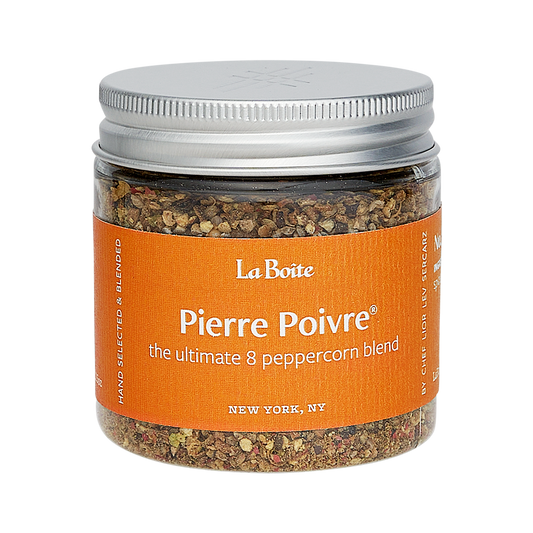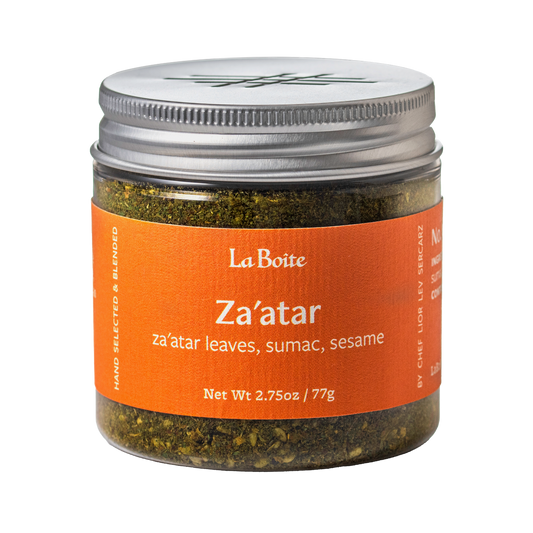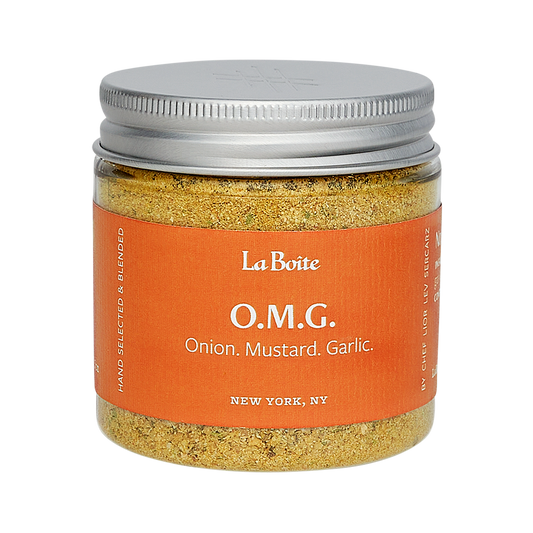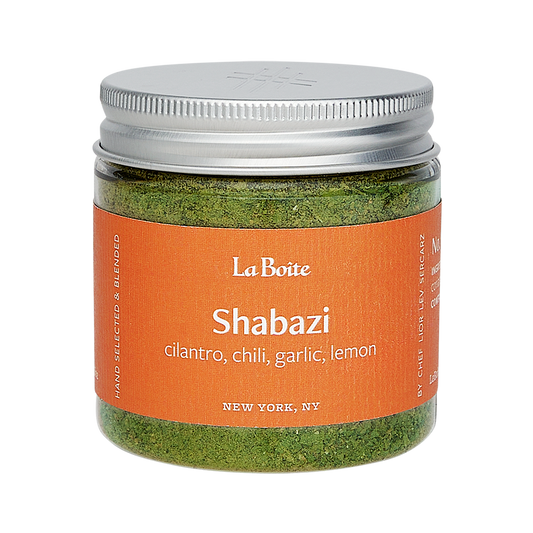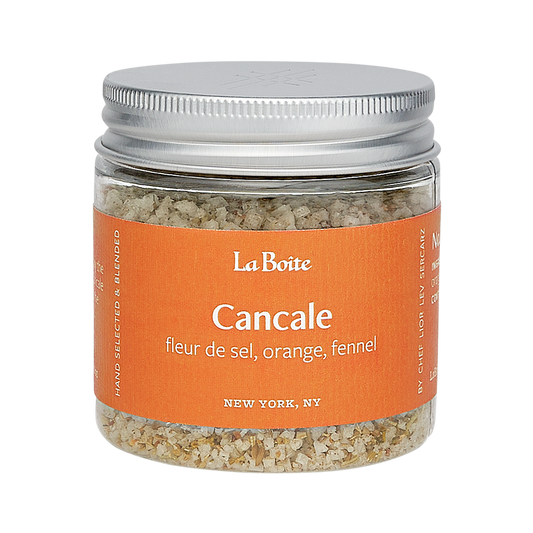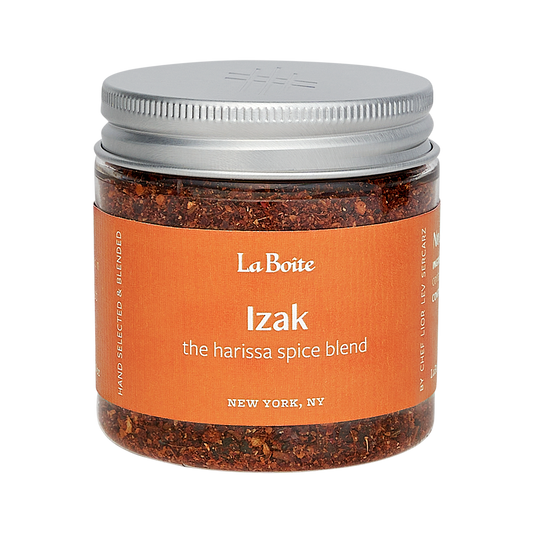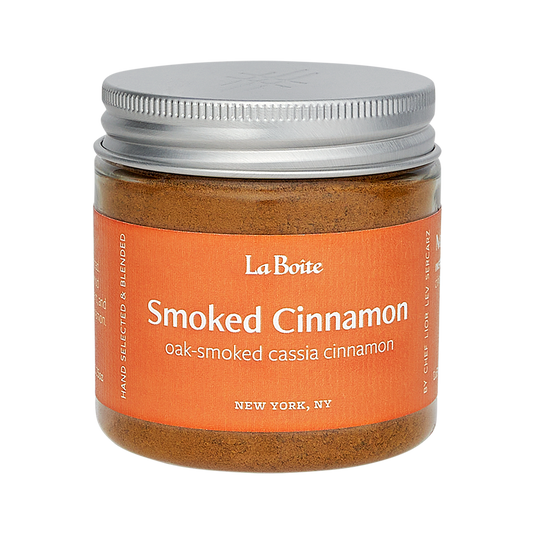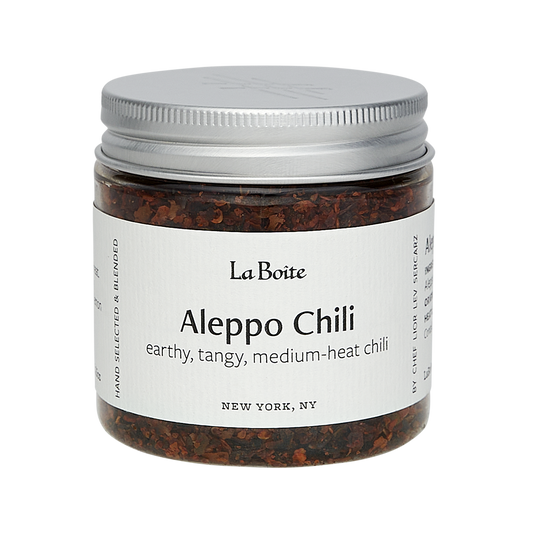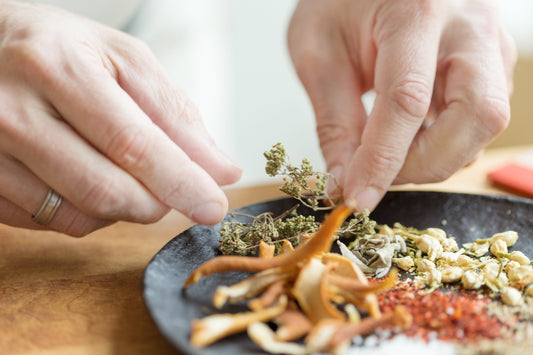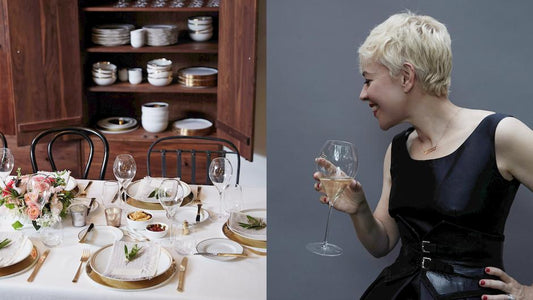With an olive orchard in the Galilee and a spice shop in Manhattan, the Lev Sercarz family provides inspiration for leading chefs in Israel and New York.

Tuesday afternoon at the oil press in Ein Camonim. The olive harvest began a few days earlier, and farmers from the surrounding area are streaming in – some by tractor, some in vans and some in private cars – each with its load of green-black olives. Inside the spacious industrial building stand huge millstones on a raised platform, turning on their axes with a roaring sound.
An oil-extraction assembly line, imported from Italy, has replaced the traditional method of extracting the oil: Harnessed to the millstones is a sophisticated electric motor, rather than a farm animal. Only the appetizing fragrance of millions of olives being squeezed remains as it was in former days.
Moshe Lev Sercarz has no time now to enjoy the scent of oil. Right after he unloads the olives that were picked at dawn in his orchards, he checks to see who has preceded him at the oil press. “You can’t make good olive oil if you aren’t crazy,” he mutters. “I started picking at 5 A.M. and I don’t mind leaving here even at 2 A.M. If I see someone ahead of me who I don’t approve of, I’m not willing to have my olives go in. The time between the harvest and the oil production is critical for good olive oil, but the cleanliness of the oil press is no less important. I’m willing to wait a few hours if the one who came before me is someone who doesn’t make sure to bring olives that are clean of leaves, stones and other dirt from the field.”
Only when he sees that a veteran farmer from Metula has preceded him does Moshe calm down and take the time to be alone with his olives. “Put your hands deep inside the container,” he enthusiastically urges the guests, taking a handful of olives and crushing them between his palms. “Feel how cool the olives picked early in the morning still are.”
Moshe’s silver mane is familiar to almost everyone who frequented the Yoezer Wine Bar, the Jaffa restaurant owned by the late Shaul Evron. Staff and regulars called him “Moshe Boukha,” after his home-made boukha, a brandy made from figs that grow in his orchard, called Bustan Haim, in the Galilee panhandle, which he would always bring as a gift to Evron.

Lev Sercarz was born in Jaffa in 1950 and came to the lovely uncultivated area where the fruit orchard is situated as an “external child” on Kibbutz Dan. “I fell in love with the place. I told myself I wanted to live there and farm this land. Eventually, in 1993, I settled on the land illegally and without any knowledge of agriculture, with only intuition and a desire to fill the place with trees. The moment I planted the first tree, I became connected to the land.”
In the area of the orchard, the biblical seven species are planted. “All the fig trees – which originate from a female tree smuggled by a dear man under his coat when he immigrated from Morocco – started from shoots that were planted together with wheat and barley seeds,” he explains. “Hormones secreted by the grains help fig trees to grow. Each of the seven species will give fruit separately, but if you grow them together and in a certain order they will yield seven times as much.”
Of over 200 fig trees that were planted in the orchard, only 60 remain today (“I was forced to uproot many of them because of a fig-tree pest called the cerambycidae beetle”).
The 300 olive trees (“I’m familiar with each one by name and plot”) are a subspecies of the Suri olive, which originates in the area of Tyre and whose name is a distortion of the Lebanese city’s name. They came from shoots from an ancient olive tree located near today’s border. Local growers call the subspecies of the most common local variety of olives “Amqa,” after the village where the tree is situated.
The spice expert
Moshe’s telephone rings with a message from New York: “Dad, send a picture of the olives.” Chef and spice expert Lior Lev Sercarz, Moshe’s middle son, is longing for home on the day of the olive harvest. Born in 1972, Lior grew up on Kibbutz Dan. He studied cooking in France and worked, among other places, in the restaurant of Olivier Roellinger. In 2002 he moved to New York. After years of demanding work in catering companies and restaurants, including four years as assistant to chef and restaurateur Daniel Boulud, he opened La Boite, a firm that prepares spice blends, in 2008.

“Most people don’t understand anything about spices, despite their frequent use in cooking,” said Lior when we visited him a few months ago in his store-workshop in New York. The tall, graying man looks remarkably like his father. “There’s a significant difference in the perception of spices between Eastern and Western culture, and that’s even more true of people in the United States. Until recently in America, spices were almost a seasonal ingredient, something you use only on holidays and for special events. With the flourishing of ethnic cuisines, which use spices extensively and on a daily basis, people began to study the field, and still there are few who understand it. For some it is easier to buy a blend from me than to handle each spice separately and achieve good combinations of flavors.”
The younger Lev Sercarz speaks softly and wears a spotless white coat. The carefully designed, minimalist store, with a changing art exhibit on its walls, looks more like a pharmacy than a market of exotic spices. But the tempestuous, romantic world of images bequeathed by his father is concealed in the labeled jars and in the names of the spice blends: Shabazi (whose dried ingredients draw their inspiration of Yemenite zhug), Galil, Ararat, Isfahan, Catalonia (whose ingredients include smoked cinnamon and pimento) and more.
He imports some of the raw spices from independent farmers in France, Cambodia and Vietnam; others are carefully chosen from the best spice merchants in the world, with whom he has formed a close relationship over the years. And he sells to many prominent chefs.
Lev Sercarz’s spice blends aren’t available in Israel. There was an unsuccessful attempt to import a limited number of blends, but the price of transporting them made already expensive products even more so. However, now father and son have started a very small cooperative project: Moshe has been marketing caviar from the Dan River and Lior has prepared a special mixture of salts in which the caviar is preserved (it has a slightly smoked flavor that emphasizes the oil-rich texture of the fish eggs).
Anyone who can’t afford caviar (450 shekels, or $115, for 100 grams) can still enjoy the olive oil of Bustan Haim. Meticulous attention to all the parameters of high-quality olive oil, from nurturing the trees until the day of the harvest and the oil extraction, make it exceptional. But you’d better hurry. Over the years a regular group of fans has been purchasing almost all the oil at the beginning of the season.
Original article here.
